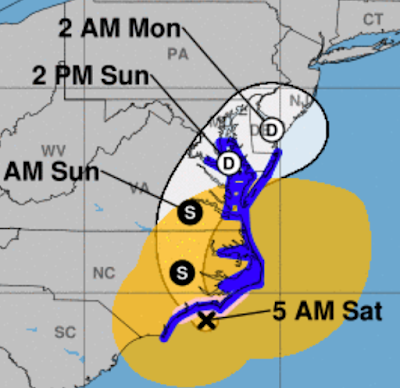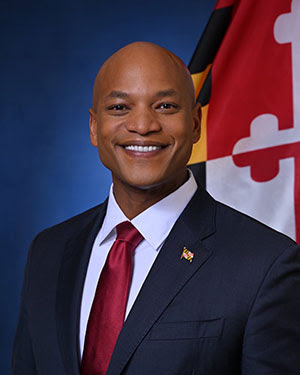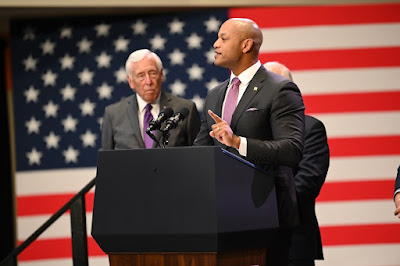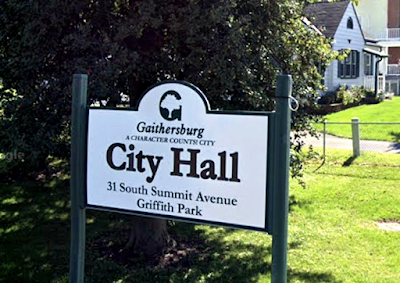Maryland Attorney General
Anthony Brown has ruled that the Montgomery County Council does not have the legal authority to pass a law that would prevent police from making traffic stops for minor offenses. Council President Evan Glass sought an opinion from Brown in regards to legality of the proposed STEP Act (Council Bill 12-23). Introduced by Councilmember
Will Jawando, and co-sponsored by Councilmember
Kristin Mink, the bill would ban police from making traffic stops for offenses such as a defective headlight or tinted windows.
Brown's finding, issued in a September 15, 2023 memo to Glass, is that Maryland vehicle law preempts any County law regarding traffic stops. However, Brown advised Glass that another STEP Act provision, which would ban police from seeking consent to search a vehicle unless there is "reasonable suspicion" that a crime has been committed, would be permissible because Maryland vehicle law "does not address the subject of searches during traffic stops."
The STEP Act is one of several criminal justice reforms introduced or steered to passage by Jawando in his two terms on the Council. Those initiatives have been highlighted during his current campaign for the Maryland U.S. Senate seat of Ben Cardin (D), who is retiring after his term ends. In advocating for the STEP Act, Jawando argued that change was necessary to reduce the outsize impact of traffic stops on drivers of color.
One group that advocated for both of the STEP Act provisions in question, the Decriminalize Montgomery County Coalition, said in a statement that its members are "disappointed" in Brown's ruling on the traffic stop question. It urges the Council to move forward on passage of the provision on consent searches of vehicles, and the Maryland General Assembly to update the state's vehicle law to allow localities to ban traffic stops for minor offenses.
"The Decriminalize Montgomery County coalition is deeply concerned that [Brown's] opinion poses an obstruction to racial justice," the organization said. "The STEP Act was introduced to reduce racial disparities in traffic stops. In fact, the opinion correctly acknowledges that police disproportionately stop Black and brown drivers compared to other drivers. Drivers of color are frequently stopped for minor offenses, such as a broken taillight or an expired registration, even though these violations do not threaten public safety. These stops often end up turning into consent searches so that police can search vehicles for drugs, and can escalate into emotional and physical harm. They are fundamental problems that still need to be addressed. Stopping consent searches is a step towards that end, but the best way to reduce police harm is to ensure that the stop does not happen at all."
Organizations that are part of the DMC coalition supporting the STEP Act include Young People for Progress (YPP), the Silver Spring Justice Coalition (SSJC), the American Civil Liberties Union (ACLU) of Maryland, and Jews United for Justice (JUFJ).


































